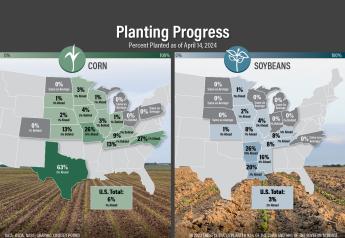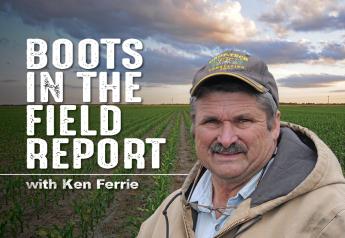The Millennial: Modern Farmers’ Messiah?

This year, a new generation is poised to have more spending power than any other segment of the population. With nearly 75 million millennials, the reality is that farmers and the rest of the food industry have to pay attention.
The twisted irony of agriculture’s millennial “problem” is that they might just turn out to be modern farmers’ best hope for the future. Yes, you heard me right. That 30-something who may still live in mom and dad’s basement and wear pajama bottoms more often than pants could actually drive more profitability back to the farm.
This generation isn’t afraid to fight for what it believes in and certainly doesn’t feel the need to apologize. And when it comes to food, millennials take it personally and demand more from those who provide and produce it. We’ve already seen many changes in the food industry—for example, Amazon’s acquisition of Whole Foods—and the rise of home delivery meal kit companies such as Blue Apron and HelloFresh.
But back at the farm, the mainstream farmer has seemingly remained pretty much unaffected by the demands of millennials. It would be wise to start to better understand your primary customers of the next 20 years to 30 years.
So just who are they, and why is food such a big deal to them? They can be best described as the transparent generation. They desire—and are now demanding with their spending power—for businesses to operate in a way that they can easily see what is going on.
Millennials are also a generation focused on information, and they grew up immersed in technology. The world of information is at their fingertips, and mobile devices are the primary way in which they learn about everything from Kim Kardashian to the calories in their kale smoothies.
According to a report by the USDA, millennial households are buying more unprocessed foods such as fruits and vegetables than processed foods such as pasta and potato chips. Millennials want their food quick, easy, fresh and unprocessed. Data from the Organic Trade Association say that 52% of organic consumers are millennials, a market that’s growing rapidly. Another report says that a staggering 40% of millennials are taking on a plant-based diet.
Already, demand for “real food” is far outstripping the supply. Suppliers and processors just can’t find enough product to meet the “new standards” because they operate in a system built solely for producing a small set of products on an enormous scale. Meanwhile, titanic-sized faceless farms that follow the traditional model are barely eking out a profit. In economic environments such as today’s, that means a 100-acre farm growing high-demand crops can be far more profitable than a 10,000-acre commodity farm growing corn.
The bottom line for most farmers is they are still operating in the baby boomer world of food production. Millennials want to get to know farmers and their farms on a personal level. So isn’t it time we help farmers adopt a millennial mindset? The changes made may just turn out to be the most profitable moves a farm has ever made.







